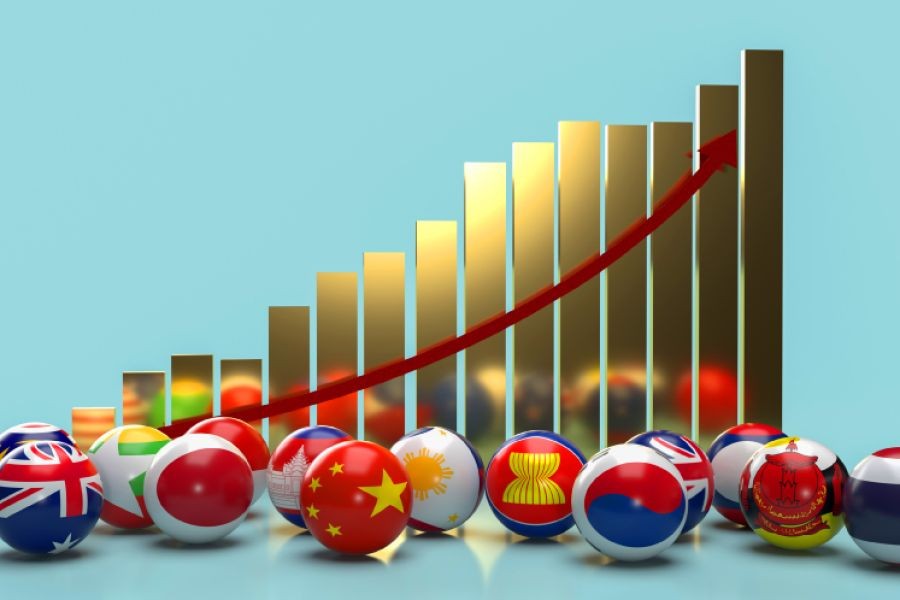In recent years, the rapid advancement of artificial intelligence (AI) has fundamentally transformed how businesses operate, particularly in the realm of supply chains. This evolution is not just a global phenomenon but has significant implications for Australian businesses as well. As the country aims to bolster its economic resilience and competitiveness, investing in AI-powered supply chains emerges as a strategic imperative.
Understanding the Current Landscape
Australia's economy, notably reliant on sectors like mining, agriculture, and manufacturing, is experiencing a shift towards digital transformation. According to the Australian Bureau of Statistics, these industries contribute significantly to GDP, and optimizing their supply chains could enhance productivity and competitiveness. However, traditional supply chain models are often plagued by inefficiencies, limited data visibility, and slow response times.
1. Enhanced Efficiency and Productivity
AI-powered supply chains leverage machine learning algorithms and data analytics to streamline operations. For example, AI can predict demand fluctuations, optimize inventory levels, and automate routine tasks, leading to a more efficient supply chain. A report from McKinsey indicates that companies adopting AI in their supply chains see a 15% reduction in logistics costs and a 35% improvement in inventory levels.
2. Improved Demand Forecasting
Accurate demand forecasting is crucial for maintaining cost-effective supply chains. AI algorithms analyze historical data and market trends to predict future demand more accurately than traditional methods. For instance, Woolworths, one of Australia's largest retailers, utilized AI-driven demand forecasting to enhance its supply chain efficiency, resulting in a 20% reduction in stockouts and overstocking issues.
3. Real-Time Supply Chain Visibility
AI technologies provide real-time insights into supply chain operations, allowing businesses to monitor the movement of goods and materials throughout the supply network. This visibility is critical for identifying bottlenecks and mitigating potential disruptions. For Australian businesses, which often deal with long supply chains due to geographic distances, real-time visibility can significantly reduce delays and improve customer satisfaction.
4. Cost Reduction and Increased Profit Margins
Integrating AI into supply chains can lead to substantial cost savings. By automating processes and improving efficiency, businesses can reduce operational costs and increase profit margins. According to a study by PwC Australia, companies can achieve up to a 30% reduction in supply chain costs through AI implementation.
5. Enhanced Decision-Making Capabilities
AI systems process vast amounts of data to provide actionable insights, enabling businesses to make informed decisions quickly. In the context of supply chains, this means optimizing routes, selecting suppliers, and managing risks more effectively. The Reserve Bank of Australia emphasizes that better decision-making capabilities are crucial for maintaining competitive advantage in a dynamic market.
6. Sustainability and Environmental Impact
Sustainability is increasingly becoming a priority for Australian businesses. AI can optimize supply chains to minimize waste, reduce carbon footprints, and improve resource efficiency. For instance, AI-driven route optimization can lead to significant reductions in fuel consumption and emissions, aligning with Australia's commitment to achieving net-zero carbon emissions by 2050.
7. Risk Management and Mitigation
AI can identify potential risks in the supply chain and suggest mitigation strategies before issues escalate. This proactive approach is essential for Australian businesses to navigate uncertainties such as natural disasters or geopolitical tensions. A report by Deloitte highlights that companies using AI for risk management see a 25% decrease in supply chain disruptions.
8. Competitive Advantage
Early adopters of AI in supply chains gain a competitive edge by enhancing efficiency, reducing costs, and improving customer service. Australian businesses that invest in AI can differentiate themselves from competitors who rely on outdated supply chain models. This competitive advantage is crucial in industries like retail and manufacturing, where margins are tight, and customer expectations are high.
9. Customization and Personalization
AI enables businesses to offer customized and personalized products to consumers, meeting the growing demand for tailored experiences. In the context of supply chains, this means being able to adapt quickly to changing consumer preferences and market conditions. According to a survey by the Australian Consumer and Competition Commission (ACCC), consumers are increasingly favoring companies that can deliver personalized experiences.
10. Future-Proofing Operations
Investing in AI-powered supply chains prepares Australian businesses for future challenges and opportunities. As technology continues to evolve, AI systems will become more sophisticated, further enhancing supply chain capabilities. By integrating AI now, businesses can ensure they are well-positioned to capitalize on future advancements and remain competitive in a rapidly changing market.
Real-World Case Studies
Case Study: Woolworths – Revolutionizing Grocery Supply Chains
Problem: Woolworths faced challenges with inventory management and stockouts, impacting customer satisfaction and sales.
Action: By implementing AI-driven demand forecasting, Woolworths optimized inventory levels and improved supply chain efficiency.
Result: Woolworths achieved a 20% reduction in stockouts and a 15% increase in customer satisfaction.
Takeaway: AI-powered demand forecasting can significantly enhance supply chain efficiency and customer satisfaction in the retail industry.
Case Study: Rio Tinto – Mining Supply Chain Optimization
Problem: Rio Tinto, a leading mining company, faced logistical challenges in transporting raw materials efficiently.
Action: The company integrated AI to optimize transportation routes and improve supply chain logistics.
Result: Rio Tinto reduced transportation costs by 25% and increased overall supply chain efficiency.
Takeaway: AI-driven logistics optimization is crucial for industries with complex supply chains, such as mining.
Pros vs. Cons of AI-Powered Supply Chains
Pros:
- Increased Efficiency: Automation and optimization lead to faster and more reliable supply chain operations.
- Cost Reduction: AI helps in cutting operational costs and improving profit margins.
- Enhanced Decision-Making: Data-driven insights enable better strategic decisions.
- Sustainability: AI supports eco-friendly practices, aligning with environmental goals.
- Risk Mitigation: Proactive identification and management of supply chain risks.
Cons:
- Initial Investment: Implementing AI technologies requires significant upfront costs.
- Data Privacy Concerns: AI systems must be managed carefully to protect sensitive data.
- Complexity: Integrating AI into existing supply chains can be complex and require specialized expertise.
- scalability: Smaller businesses may struggle with scaling AI solutions effectively.
Common Myths About AI-Powered Supply Chains
Myth: AI will replace all human jobs in supply chains. Reality: While AI automates certain tasks, it augments human capabilities, creating new roles and opportunities in supply chain management.
Myth: Only large companies can afford AI technologies. Reality: AI solutions are becoming more accessible and affordable, making them viable for small and medium-sized enterprises (SMEs) as well.
Myth: AI implementation is a one-time effort. Reality: AI systems require continuous monitoring, updates, and optimization to remain effective and deliver desired outcomes.
Future Trends and Predictions
As AI technology continues to advance, the future of supply chains looks promising. By 2030, it's predicted that AI will be integrated into 75% of Australian supply chains, leading to a more interconnected and efficient network. Emerging technologies like the Internet of Things (IoT) and blockchain will further enhance supply chain capabilities, providing unprecedented levels of transparency and traceability.
Conclusion
The integration of AI into supply chains offers Australian businesses a unique opportunity to enhance efficiency, reduce costs, and gain a competitive edge. As the global market continues to evolve, investing in AI-powered supply chains will be crucial for businesses aiming to remain competitive and sustainable. By embracing these technologies, Australian companies can future-proof their operations and thrive in an increasingly complex business environment.
What are your thoughts on the future of AI in supply chains? Share your insights and experiences in the comments below!
People Also Ask
- What are the benefits of AI in supply chains?AI enhances efficiency, reduces costs, and improves decision-making, providing a competitive edge for businesses.
- How does AI improve demand forecasting?By analyzing historical data and market trends, AI predicts demand more accurately, reducing stockouts and overstocking.
- Is AI suitable for small businesses?Yes, AI solutions are increasingly accessible and affordable, making them viable for SMEs to enhance their supply chains.
Related Search Queries
- AI supply chain trends Australia
- Benefits of AI in logistics
- AI demand forecasting Australia
- AI supply chain case studies
- Future of AI in supply chain management


































Dermalife - Best Dermatology Hair Transplant Clinic in Delhi
7 days ago